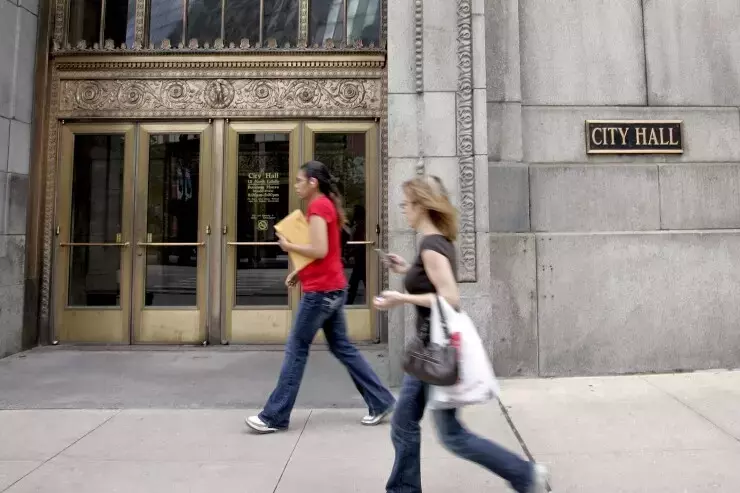Chicago is preparing to issue $830 million in general obligation bonds to bolster its capital improvement plan, despite recent credit downgrades and ongoing financial hurdles. The city’s CFO emphasizes that the capital investment strategy remains robust, even as rating agencies voice concerns over pension liabilities and revenue limitations.
A Bold Move for Urban Revitalization Amidst Fiscal Uncertainty
The Capital Improvement Plan Unveiled
The City of Chicago has announced plans to issue approximately $830 million in general obligation (GO) bonds to fund a series of critical infrastructure projects outlined in its four-year, $16.3 billion Capital Improvement Program (CIP). These funds will be directed toward enhancing public rights-of-way, transportation systems, and economic development initiatives. Last year, the city successfully issued $646 million in GO bonds to support similar projects, underscoring its commitment to sustainable urban development.Chief Financial Officer Jill Jaworski emphasized that the CIP remains intact and unaffected by the opinions of individual rating agencies. She highlighted that the city currently holds $4.978 billion in outstanding GO bond debt, demonstrating a strategic approach to managing long-term obligations while addressing immediate infrastructure needs. Jaworski also noted that an additional $75 million in GO bonds is slated for issuance in early 2025 to finance housing and economic development projects, further reinforcing the city's dedication to fostering growth and resilience.Ratings Agencies Weigh In on Chicago's Financial Health
Despite the city's proactive stance on capital investments, several rating agencies have expressed varying degrees of concern regarding Chicago's fiscal stability. S&P Global Ratings recently downgraded the city's GO debt from BBB-plus to BBB, citing limited revenue options, diminishing federal relief funds, and substantial pension liabilities. However, Moody’s Ratings maintains a Baa3 rating with a positive outlook, attributing this to the city's ability to manage pension funding effectively over time.Fitch Ratings assigns an A-minus rating to Chicago's GOs, reflecting an upgrade from BBB-plus in July, with a stable outlook. Kroll Bond Rating Agency, meanwhile, placed its A rating on watch for a potential downgrade in November. Despite these mixed signals, Moody’s positive outlook suggests that the city's efforts to stabilize its finances are gaining traction. The agency acknowledged that the 2025 budget, negotiated by Mayor Brandon Johnson, is credit neutral, indicating a balanced approach to fiscal management.Navigating Complex Relationships and Budgetary Constraints
The city's financial challenges extend beyond ratings and bond sales, delving into intricate relationships with state and federal authorities. Howard Cure, a partner and director of municipal bond research at Evercore Wealth Management, pointed out that the chaotic nature of the budget negotiations with the City Council and strained ties with the state legislature pose significant hurdles. Governor JB Pritzker has publicly noted that Mayor Johnson does not frequently seek assistance from Springfield, which could impact future collaborations and resource allocation.Moreover, the state of Illinois faces its own budgetary imbalances, particularly concerning Medicaid and K-12 education funding. This creates a ripple effect on cities like Chicago, which may find it increasingly difficult to secure state support. Cure stressed that cities nationwide must prepare for potential fiscal constraints at the state level, especially given the political climate and federal policies that could further complicate matters.Addressing Public Sector Financial Strain
Compounding the city's financial pressures are the challenges faced by Chicago Public Schools and the region's transit system. Discussions around expanding the sales tax to cover essential services highlight the shared burden among various public entities. With multiple sectors vying for limited resources, finding a balanced solution becomes more complex. Additionally, the possibility of federal cuts to pandemic relief funds or reductions in Medicaid and education funding adds another layer of uncertainty.In conclusion, while the city's bond issuance and capital improvement initiatives demonstrate a commitment to progress, the interplay of local, state, and federal financial dynamics presents a multifaceted challenge. Mayor Johnson and his administration must navigate these complexities with strategic foresight, ensuring that Chicago remains resilient in the face of evolving fiscal landscapes.
